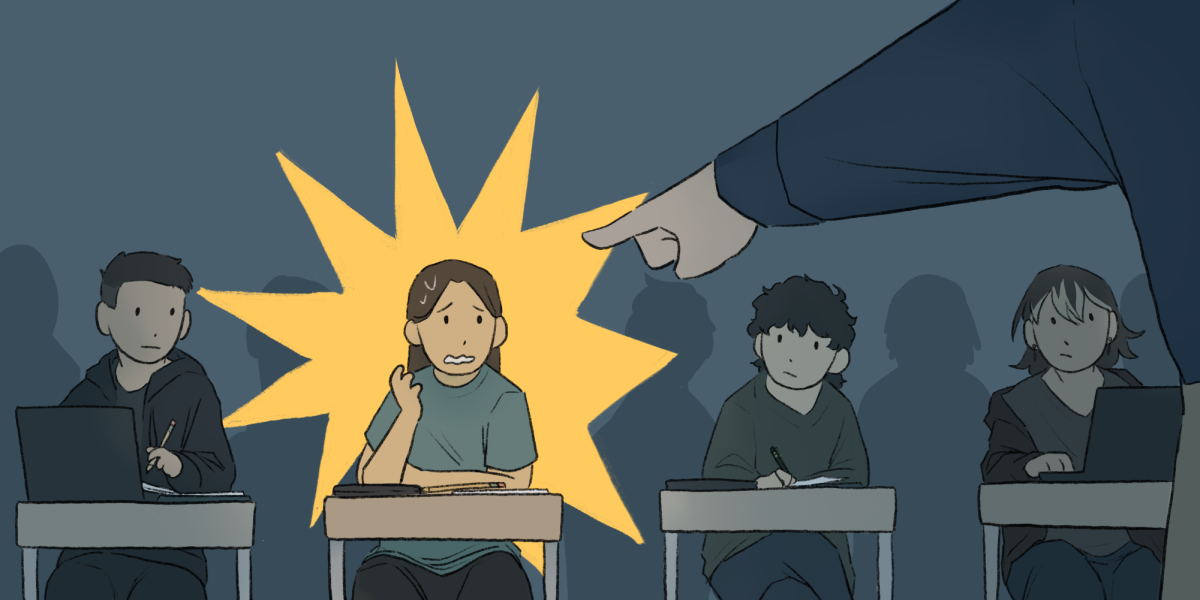Cold calling, a term used to define being called on in class when you don’t have your hand raised, is a prevalent technique teachers use to get the class to answer more questions, or to keep the students from getting distracted. But this action does not make students more engaged, quite the contrary; cold calling makes students less interested and makes them dislike the class further.
From a teacher’s point of view, cold calling may be the only way to get their quiet class to participate. Many teachers ask questions only to have a small number of students willing to answer, so they randomly call on someone. While this may seem like a good idea, it introduces many problems. First, some students may not be ready to answer because they are in the middle of another task.
“Cold calling causes distraction to the students if they are deep into their work,” sophomore Micah Porte stated. If someone were to be taking notes, being called on may disrupt their endeavor. Second, people may not be ready to answer simply because they aren’t yet confident with the material. If they are called on, they may feel stressed and embarrassed that they can’t respond correctly.
Sure, there are situations where some students are distracted in the class and teachers use cold-calling as a means to get these students to refocus, or to keep them on their toes. But even in those situations, cold-calling does more harm than good. According to an article from Edutopia, the author states, “Teachers who used cold calling this way ultimately undermined classroom participation by making students feel ‘incompetent and anxious.’”
Sophomore Sam Stringer expanded on the topic. “Teachers shouldn’t use embarrassing you as a form of punishment. That’s so petty.” If you already dislike the class, then cold-calling can exacerbate those feelings.
We have to remember that the primary intention of cold-calling is to make the class more engaged. However, cold-calling is merely addressing the symptom without addressing the cause: people aren’t enjoying the class. Freshman Colgan Baron expressed that teachers who cold call are “assuming [they’re] doing a good job teaching the subject.” Those teachers think the students are the problem, not the way the class is being taught.
“If no one raises their hand, the problem is that no one understands, no one is engaged, or no one feels comfortable saying the answer. The class should feel inclusive. If you know the answer, you should feel comfortable saying it,” said sophomore Owen Cameron.
There are many alternative methods to cold-calling worth mentioning. Freshman Mahin Goel brought up the idea of adding a participation grade.
“People are more motivated to do well when there’s a grade attached,” they added.
Sophomore Bodhi Muriel stated, “I had this one teacher that would not cold call students, and people would eventually share something independently because there was no cold calling. The absence of cold calling can solve the problem itself and make people more willing to speak up.”
Cold-calling – while it may seem to be a solution to an annoying problem, it turns out to be a cause of students losing interest, engagement, and enjoyment in their classes. If a student has lost the desire to learn, their future has been adversely affected. So let me ask you this: is cold-calling worth it?






